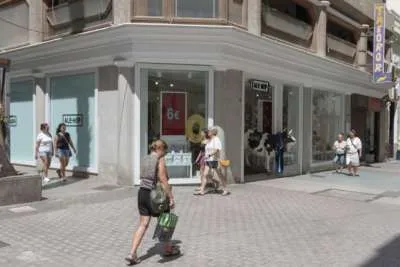Booking.com removes over 4,000 illegal holiday apartments – mostly in the Canary Islands
- 26-06-2025
- National
- Canarian Weekly
- Photo Credit: Booking.com
Booking.com has removed more than 4,000 illegal holiday rental listings from its platform in Spain, with the majority located in the Canary Islands. The move follows pressure from Spain’s Ministry of Consumer Affairs, which formally requested the removal after identifying adverts that did not comply with legal requirements.
According to the Ministry, the listings in question either lacked a valid registration or licence number, included false licence details, or failed to clearly state whether the property was managed by a private individual or a company. This information is mandatory under Spanish law and designed to protect both holidaymakers and the local housing market.
In total, 4,093 listings were removed by Booking.com, with a significant number affecting properties across the Canary Islands. Other affected regions included Asturias, Cantabria, Castilla y León, Navarra, La Rioja, and Castilla-La Mancha.
The Ministry praised Booking.com for its cooperation, calling it a “positive step” in the effort to ensure holiday rentals meet legal standards. Spain’s Minister for Consumer Affairs, Pablo Bustinduy, said the surge in unlicensed short-term lets is a key factor behind housing shortages in popular tourist areas like the Canaries.
“This kind of unregulated activity puts pressure on the local housing market and reduces the availability of affordable homes for residents,” he said.
This action comes just days after Spain’s High Court in Madrid backed the Ministry’s request for Airbnb to remove over 65,000 similar listings nationwide. Airbnb had tried to block the order through the courts but was unsuccessful.
While the clean-up aims to bring more transparency and fairness to the rental market, some Booking.com users have complained about a lack of refunds for bookings that had to be cancelled due to bad weather in the Canary Islands earlier in the year. The company has not yet commented publicly on those complaints.
The crackdown is part of a broader national effort to regulate the booming holiday rental sector, which many blame for rising rents and the growing strain on housing availability in tourist-heavy regions. Authorities say the goal is not to punish legitimate rentals, but to ensure that all properties meet the rules designed to protect visitors and local communities alike.
Other articles that may interest you...
Trending
Most Read Articles
Featured Videos
TributoFest: Michael Buble promo 14.02.2026
- 30-01-2026
TEAs 2025 Highlights
- 17-11-2025


























































